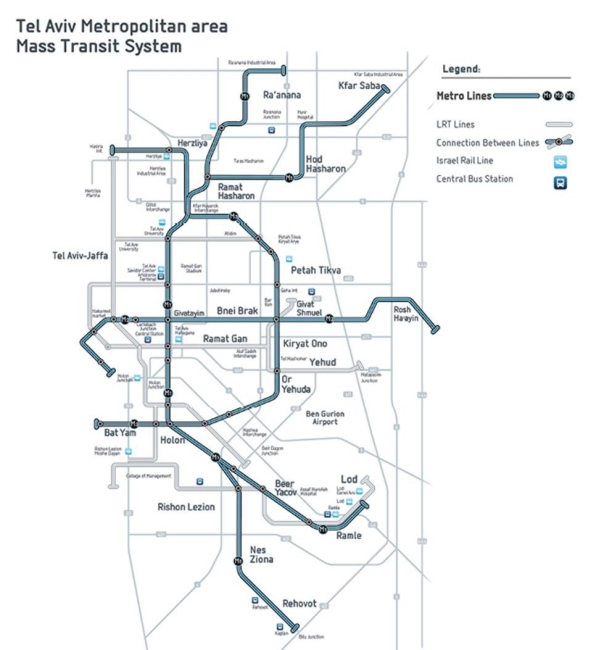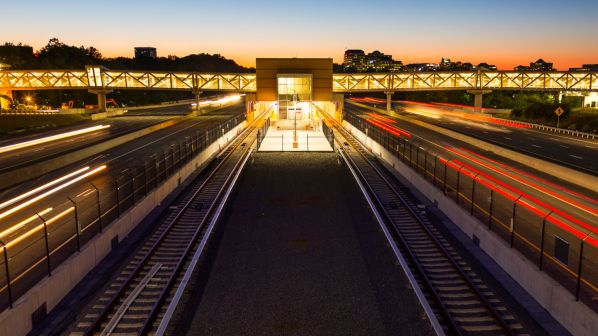The 145km metro network was first announced in December 2018, and will be built in addition to the light rail network currently under construction.
Planning is due to be completed by the end of 2020. The network would serve 100 stations, running through 23 local authorities.
The plans for the east-west M2, which will connect Holon and Petakh-Tikva and the northern section of the north-south M1, will be handed over to the various planning committees by the end of March. The National Infrastructure Committee is aiming to launch operation in 2030, but this has been described as over ambitious given the scale of the project.
Line M1 is expected to be 44km long, running from Holon to Rehovot with 31 stations including Tel-Giborim, Asaf Harofe medical centre, Weitzmann Institute, Kaplan medical centre, and Bilu centre.

The semi-circular Line M3 is expected to be 38km long, running from Hertzliya to Bat-Yam with 24 stations including Pi-Glilot, Asuta Ramat Hakhayal medical centre, Sheba medical centre, and Yoseftal.
The project is officially estimated to cost Shekels 155bn ($US 45.1bn), but this is also viewed as a conservative estimate, with the cost of the project possibly reaching Shekels 200bn - 250bn.
For detailed information on metro projects around the world, subscribe to IRJ Pro.

